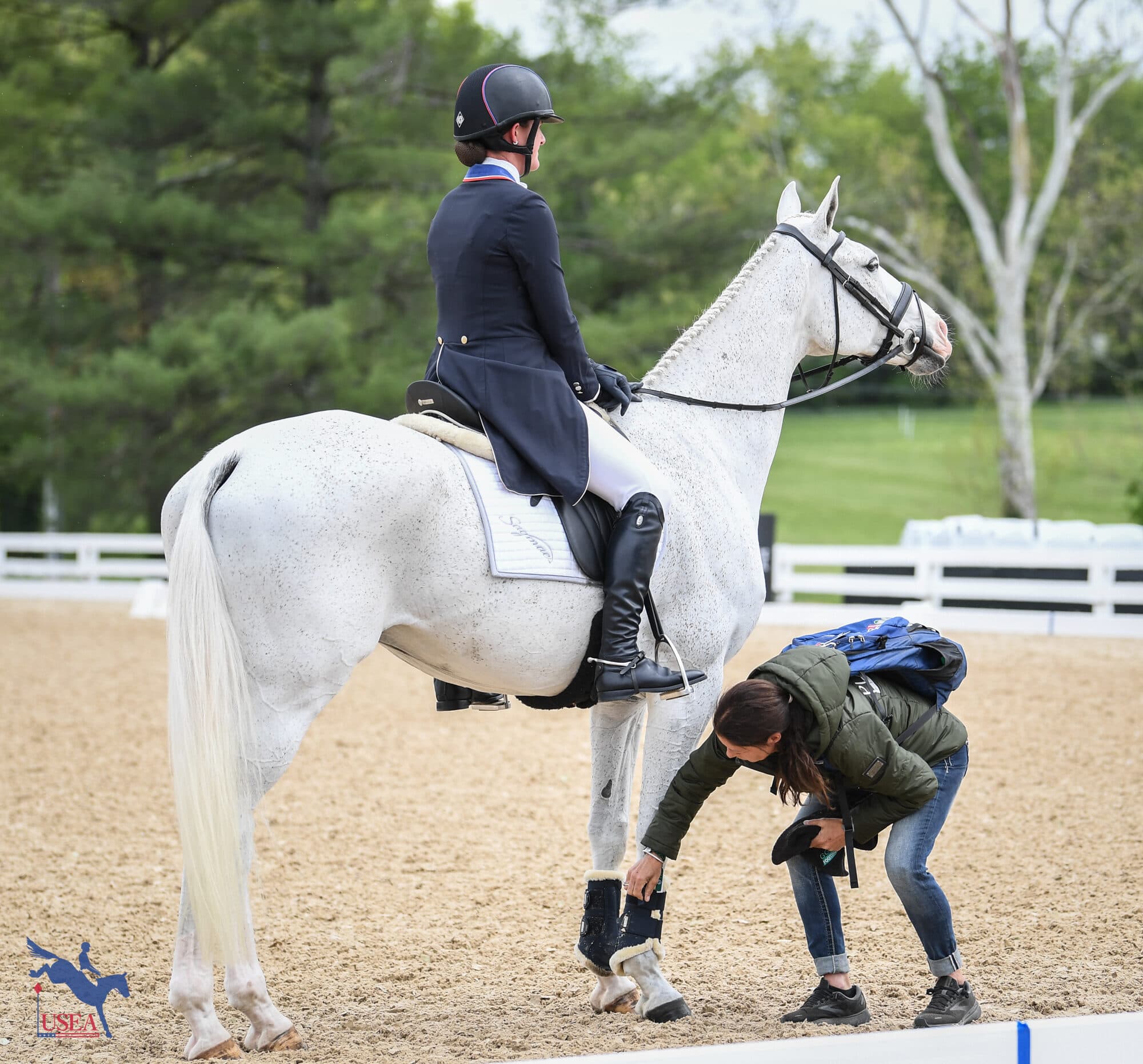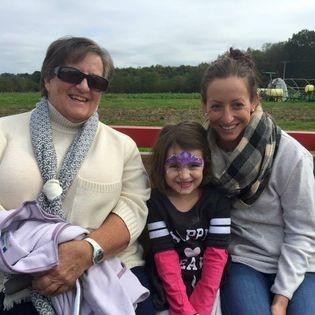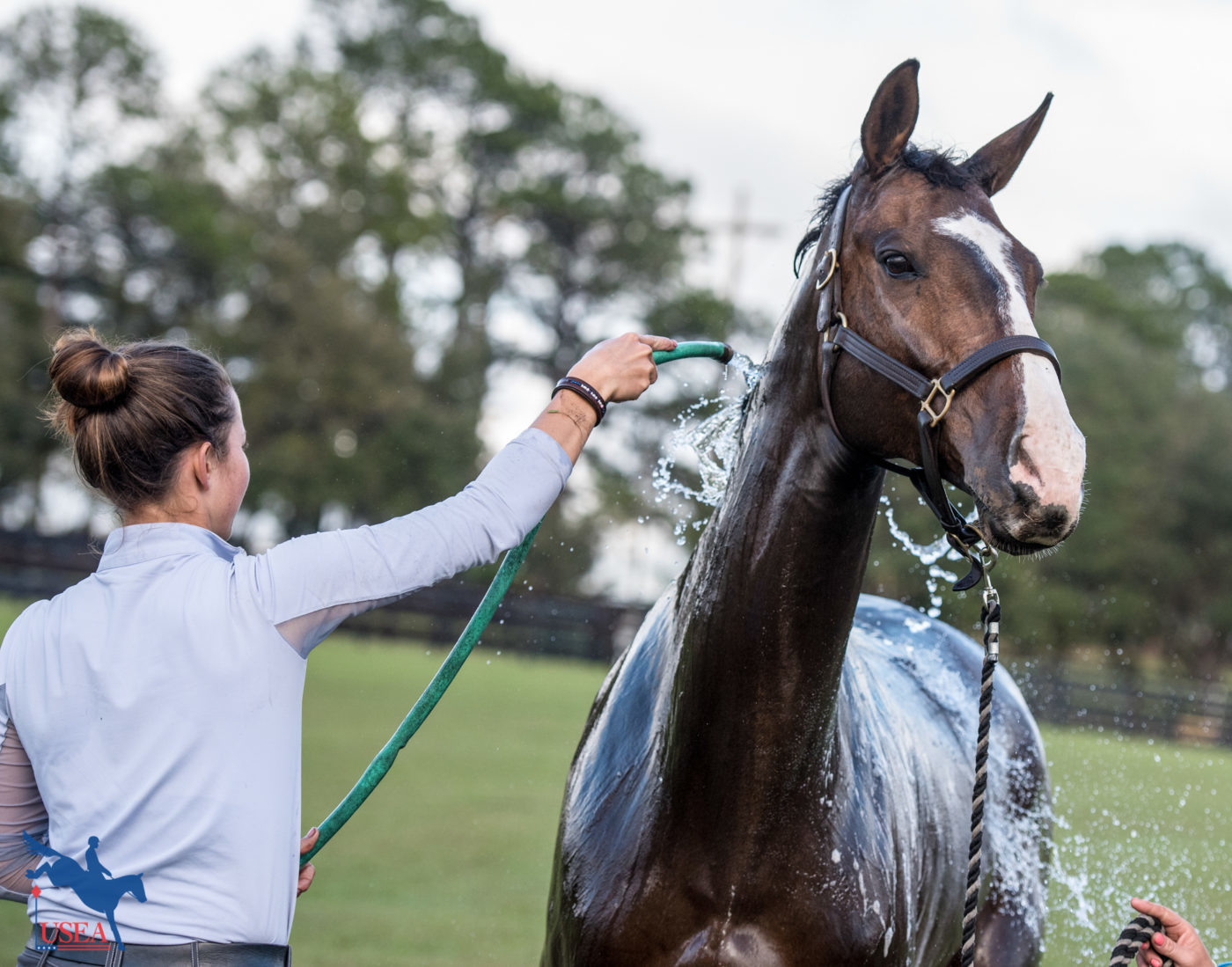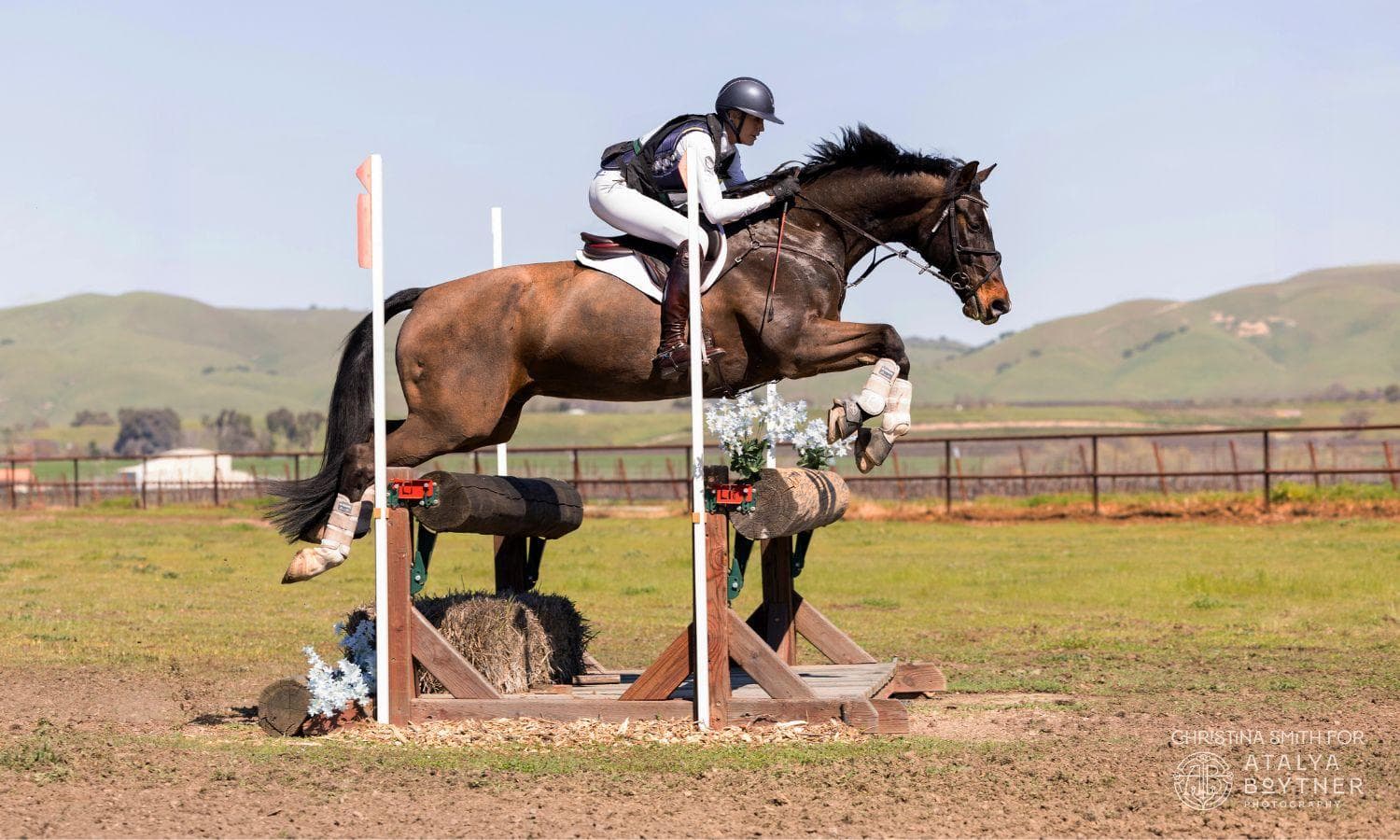The Importance of Incorporating Horsemanship Lessons in Your Training Curriculum

Being a successful eventer involves so much more than riding the three phases of dressage, cross-country, and show jumping. Joan Simmons, a founding member of what is now the USEA Eventing Coaches Program (ECP) and a Level III USEA ECP Certified Coach, shared her thoughts about how, more than riding, horsemanship is the foundation of a successful eventing partnership.
“Changes can occur in the horse from one phase to the next—mentally, emotionally, and physically,” she said. “A horseman will understand this and is prepared for the possibility of these differences. Knowing how your horse reacts physically, emotionally, and mentally as one goes from one phase to the next is imperative for successful rides.”
Simmons has spent a lifetime improving her horsemanship and teaching others to do so. With a background in hunter/jumpers and fox hunting, Simmons switched to eventing in 1980 and began working with Bruce Davidson Sr. Before that, she credits Gabor Foltenyi, a member of the Hungarian Cavalry who immigrated to the United States in 1950, trained horses at the highest level, and was inducted into the Show Jumping Hall of Fame.
“I was fortunate enough from a pretty young age to be under the wing of a fabulous horseman,” Simmons said. “He always encouraged me to watch other fabulous horsemen not only ride but how they behaved around their horses. I would encourage others to do the same.”
Simmons has passed on many lessons about horsemanship to students across all levels, as well as to her daughter Rebekah Simmons. Together, they run Kingsfield Farm in Ocala, Florida.
“Learning to be a good horseman is a never-ending quest since there is always more to learn and experience,” Joan said.

USEA: In its broader sense, how do you define the term “horsemanship?”
Many define “horsemanship” as “the art and practice of riding on horseback.” My definition of horsemanship goes far beyond this simple definition. I believe horsemanship includes not only the above but also the handling, training, well-being, and care of the horse mentally, emotionally, and physically.
What qualities make someone a good “horseman” compared to being a good “rider?”
A good rider is just that. They are able to get on a horse and ride it successfully for the task at hand. A good horseman, first of all, has a comprehensive understanding of the horse he is interacting with. He/she understands the mind of the horse, knows how to react appropriately in the learning environment. He/she knows the horse emotionally, psychologically, and physically intimately. He knows every lump and bump on the horse because he interacts with the horse on a regular basis. He understands the abilities and limitations of each horse, how and when to push the training or back off if necessary, and must always remain unemotional. He has the ability to interact with each horse as an individual.
Why is horsemanship particularly important for the sport of eventing?
The sport of eventing has often been compared to the triathlon in that there are there distinct phases horse and rider must accomplish. Because of this fact, being a good horseman is vitally important. The horseman must prepare the horse for each phase in a different way. Horses can react to each phase entirely differently which requires the horseman to redefine how he reacts.
And because oftentimes there is not a great deal of time between phases, the horseman has the responsibility for evaluating the physical and mental soundness and readiness to move on to the next phase.
What are steps eventers can take to improve their horsemanship? How can this happen during a structured lesson? How can this happen informally during the time people spend with their horses?
There are many ways in which eventers can improve their horsemanship, but this can be said for all disciplines. I am a firm believer that horsemanship starts on the ground. Make it a priority to teach your students that they are the first line of defense for the well-being of their horse.
While grooming them in preparation for a ride, teach them to know what “normal” is for their horse. Educate your students to always go over their horse looking for abnormalities. Educate them to know and always check tack fittings, including bridles, saddles, boots, and any other equipment your horse routinely uses.

During structured lessons, go over these findings to make sure they have not missed anything, and if they have, educate them at that moment. Ask them about how their horse feels and is behaving that day in preparation for the lesson. Ask if they have any concerns they wish to discuss. Keep the lines of communication open and free.
If things are not going well in a lesson, discuss possible reasons, including the rider’s mental state. I bring this up because oftentimes a poor lesson can be attributed to a rider’s mental or physical state that day. Remind the rider there is always another day and another lesson—and another competition.
Informally, there are a plethora of opportunities to widen one’s knowledge base. Watch other riders and lessons. Don’t be afraid to ask questions of the instructor, not during someone else’s lesson, but at an appropriate time. Have a notebook available to write them down then or anytime you are in the barn with or without your horse.
Learn to be watchful: watchful of what other people do and don’t do; watchful of how other horses react and how people respond. This is vitally important because being watchful can teach you things you might want to incorporate into your responsibilities, but also things you know you definitely would not do. Graze your horse where you can watch your instructor teaching, or better yet, watch them ride. I believe you are only limited to what imagination you have about learning opportunities.
What is some of the best advice you’ve received or given about being a good horseman?
Horsemanship is a never-ending learning curve. Take advantage of all that is out there from reading, discussing, watching excellent horsemen as they go about their day. Watch the warm-up area when possible as well as the competition ring. I think you learn more from watching a horseman’s warm-up than their actual competition. Jump judge, scribe, volunteer at events. Each time you do it is a learning opportunity, a never ending learning opportunity!!
Finally, I would say, I believe in the equestrian world the less you know the more you think you know, and the more you know the more you realize there is so much more to learn!
About the USEA Eventing Coaches Program (ECP)
Coaches are essential to the training of riders and horses for safe and educated participation in the sport of eventing. The USEA Eventing Coaches Program (ECP), formerly known as the Instructors’ Certification Program (ICP), was initiated in 2002 to educate all levels of eventing coaches with crucial training principles upon which they can continue to build throughout their teaching careers. ECP offers educational workshops and assessments by which both regular coaches, Level I through Level V, Young Event Horse (YEH) coaches, and Young Event Horse professional horse trainers can become ECP certified. Additional information about ECP’s goals, benefits, workshops, and assessments as well as names and contact information for current ECP certified coaches, YEH coaches, and YEH professional horse trainers are available on the USEA website. Click here to learn more about the USEA Eventing Coaches Program.















